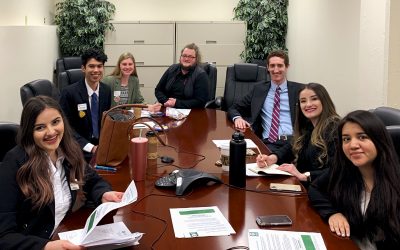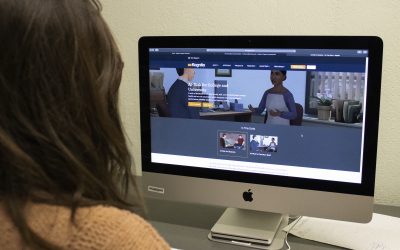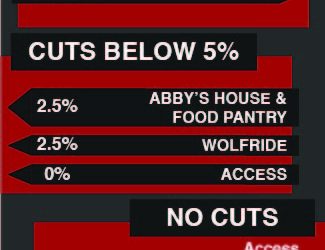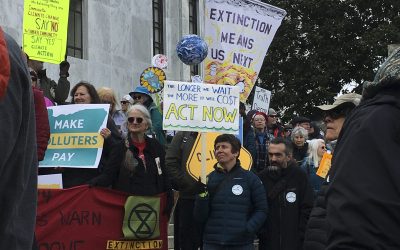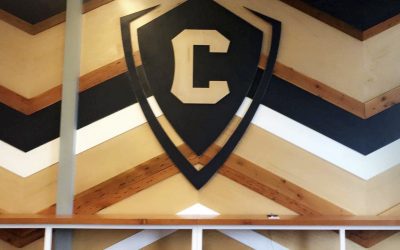Sage Kiernan-Sherrow | News Editor Members of Western’s student goverment, the Associated Students of Western Oregon University, and additional student volunteers had only 10 to 15 minutes to advocate for issues pertaining to the entire student body during the last...
News
Western implements a new simulation service, Kognito, to help students communicate about sensitive issues.
Sage Kiernan-Sherrow | News Editor Western’s Health and Counseling Center has recently implemented an interactive simulation service called Kognito to teach students communication strategies regarding emotional and psychological distress. Kognito is an online...
Philip Harding advocated for the HR763 Bill during his Feb. 18 lecture on sustainability, explaining how it creates jobs and supports innovation.
Sage Kiernan-Sherrow | News Editor Philip Harding didn’t come to Western to convince students to believe the research of climate scientists and he certainly didn’t come to blame individuals for the climate crisis: he came to help students realize that individual...
The Incidental Fee Committee’s partial preliminary decision shows large overall departmental cuts.
Sage Kiernan-Sherrow | News Editor Every year, the Incidental Fee Committee is tasked with determining how they are going to allocate funds permitted by student fees, if any changes to the incidental fees need to be made, and which departments will be granted...
A Q & A with former U.S Representatives, Rod Chandler and NIck Lampson, about the shifts in our political climate, and the growing need for civic literacy.
Sage Kiernan-Sherrow | News Editor Congress to Campus is a program focused on educating the public about and encouraging the practice of civic literacy and public service. Last Thursday, Feb. 13, former U.S. Representatives, Rod Chandler and Nick Lampson, came to...
Rallies in response to the cap-and-trade bill draw participants from far and wide.
Sage Kiernan-Sherrow | News Editor The Timber Unity protest against Senate Bill 1530 on Thursday, Feb. 6, reportedly rallied over 2,000 people and brought over 1,000 trucks to the capitol, according to The Statesman Journal. It was countered by Renew Oregon, a...
Oregon’s largest private university, Concordia University, is closing its doors after this term
Sage Kiernan-Sherrow | News Editor Concordia University, located in Portland, is the largest private university in Oregon, and it’s closing permanently at the end of this semester in April — its 115-year run coming to an end. This makes Concordia the fourth local...
Spokesperson for Out and Proud, Mick Rose, recalls their journey of reclaiming their cultural and historical queer heritage
Sage Kiernan-Sherrow | News Editor Out and Proud is an event hosted by Western’s Multicultural Student Union, which, “recognizes the challenges that people of color face within the (LGBTQ+) community as well as celebrate their achievements and successes,” according...
SONA is a program utilized by the psychology department as they search for research participants.
Sage Kiernan-Sherrow | News Editor SONA is a program that allows Western’s psychology students and faculty to both post information about studies, and sign up to participate in them. According to Western professor, Jaime Cloud, prior to SONA, the psychology...
Coffee Talks connects students to local businesses, helps develop career-readiness skills and opens pathways to success
Sage Kiernan-Sherrow | News Editor Coffee Talks are an ongoing program hosted by the Service Learning and Career Development Center located in the Werner University Center. They are small, comfortable events that connect students with local businesses in the hopes...

